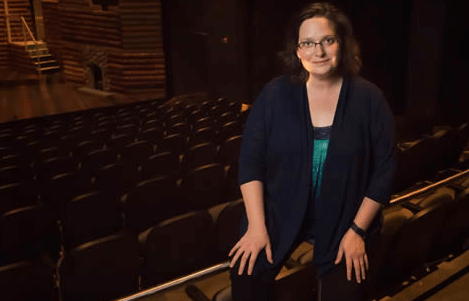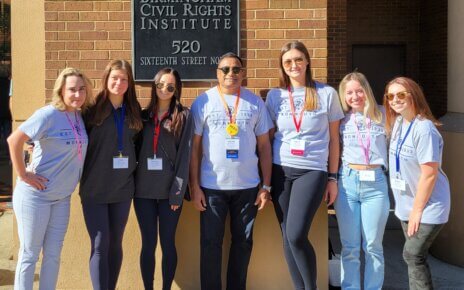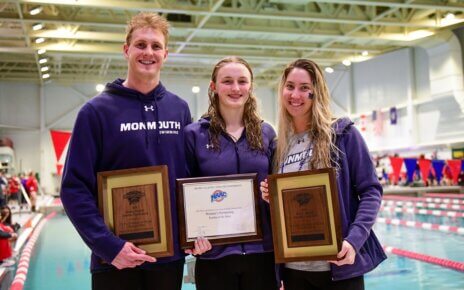ArtNOW hosted a visiting artist talk featuring feminist theatre and performance studies scholar Tessa Carr on Monday, March 20.
Carr is an Associate Professor of Theatre at Auburn University and in her tenth year as Artistic Director of Mosaic Theatre Company (MTC), a year-round ensemble whose purpose is to “foster dialogue and create a more inclusive community and culture,” according to their website.
Having grown up in the South, Carr described oppressive societal norms that silenced what she felt were important stories she didn’t get the chance to hear while growing up. “What are the stories that matter and how can I facilitate helping to tell those stories?” she questioned, describing how she now uses theatre and performance as an outlet for the pent up anger from her upbringing.
“Dr. Tessa Carr’s creative work and scholarship on collaborative student performances for social justice is vitally important on college campuses right now. We are in the midst of authoritarian book bans in schools, attacks on teachers and professors who center their work around the principles of diversity, equity, and inclusion, and backlash against curriculums that acknowledge suppressed histories and deep structures of oppression,” said Deanna Shoemaker, Ph.D., Associate Professor of Communication and Graduate Director of Master’s in Communication.
Now, as Artistic Director of MTC, Carr described how she works with students and other collaborators to create content that enables pathways for expression while generating difficult conversations that sometimes make people “uncomfortable” or “angry.”
“The work of Mosaic Theatre Company is a moving illustration of what it may take to see and hear each other in an increasingly polarized culture. It seems to me the message of Mosaic is one of embodying the performances of the world we’d like to see,” said Claude Taylor, Director for Academic Transition and Inclusion.
“We don’t do any easy topics,” continued Carr, explaining how students choose what concepts to pursue based on their interests while limiting pieces to personal lived experiences.
Recognizing her power and privilege as a cisgender white woman in the South, Carr noted the importance of decentering herself in MTC’s work and bringing focus to the voices that are underrepresented: “It’s not my job to write the stories of the folks who aren’t in the majority.”
She went on to discuss how MTC tries to speak with others rather than for others, emphasizing the collaborative work they do with outside resources to create works that “bring forward best practices” while ensuring that the appropriate voices are being heard and that their stories are being accurately told.
“Dr. Carr’s use of performance as a critical research method allows her students to engage and perform important archival research, oral history narratives, and noncanonical texts on campus and in community settings. This resistant and critical work also applies to teaching methods professors can use in college classrooms to activate not just our minds but also our bodies, our lived experiences, and our collective learning,” explained Shoemaker, describing an embodied workshop that Carr led with students in one of her performance classes.
Shoemaker continued, “Standing in a circle, we centered ourselves by breathing together, shared our preferred pronouns, stated our immediate needs in the space, and discussed consent before doing embodied work. At the end of our workshop, we had a brief closing reflection on what we learned and will carry forward.”
“As a communication educator it was very thought-provoking to consider the ways in which theatre and public performance can be used to communicate about social issues to diverse audiences. I love the idea of collaborating with community members to build trust in telling their stories,” added Taylor.
Carr concluded her talk by reiterating that the goal of MTC’s work isn’t just to perform, but to critically facilitate conversation and foster these discussions on a community level.



